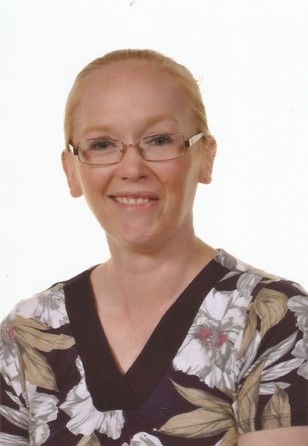About Nettlesworth Primary School

Nettlesworth Primary School is a very small school which operates in a village located in a semi-rural setting. Whilst geographically we are in relatively close proximity to other villages and Durham City, Nettlesworth still possesses some of the more insular qualities which many Durham ex-mining villages seem to have. We have 13.5% of our pupils on the SEND register, 5 with a support plan, 1 with a support plan and receives additional top-up funding and 9 with an EHC Plan. The number of children with an EHCP is a figure which has increased in recent years and is well above average An additional 6% of our pupils require intervention through Quality First Teaching. (Sep 2022). 16.3% of our pupils are included on our More Able, Gifted and Talented register. These are a mix of both genders and include pupils who are also eligible for Pupil Premium. (Sep 2022)
Currently, 30.6% of our children are eligible for Free School Meals. This is a figure which has increased in latter years and is well above average. However, when Ever 6 is taken into consideration this figure rises to 38 children – 34.2% of the total school population as of September 2022. In terms of the wider social context, the school location deprivation indicator was in quantile 4 (more deprived) of all schools, which places Nettlesworth in the highest 40% of most deprived wards nationally. The pupil base is in quintile 4 (more deprived) of all schools in terms of deprivation. This is within a wider picture of County Durham being rated the 120th most deprived county in the country.
The majority of our children live within the village locality but amongst the rest several 31% travel from other areas. Nearly a quarter of the school population (23%) come from single parent families. The largest ethnic groups are: White – British (95.8%) and Mixed – any other mixed background (3.36%). This school has 4 out of 17 possible ethnic groups. The average number of groups for this phase of education is 9.
On a regular basis, we work with a variety of children who come from vulnerable families presenting with a range of needs which cover financial, social and emotional difficulties. In recent years we have seen a real growth in the number of parents who come to us often with complex mental health issues of their own. This naturally has a profound impact on the child in school. Likewise, we now deal with a variety of more complex medical issues regarding children. As an inclusive school, we have children on our roll who have long-term illnesses such as Leukaemia, Congenital Adrenal Hyperplasia, Spina Bifida, Chromosome X Deletion, Gastric feeding tube, Verbal Apraxia, ADHD and ASD.
Our School Vision
Nettlesworth Primary School is a place where inclusion, pupil voice and respect are valued.
Our school aims to provide all children with a well-planned and balanced education taking full account of National Curriculum Statutory requirements. Within the bounds of this, we also provide for individual children’s special needs which may require more challenging work or additional help. We are an Inclusion Quality Mark School, that focuses on the pursuit of outstanding teaching and learning and creating an environment in which every student, including those who do not have disabilities, has the opportunity to flourish.
We are a NACE accredited school (an award in recognition of school-wide high-quality provision for more able learners within a context of challenge for all) and ensure there is a whole school commitment and a clear focus to providing for More Able Gifted and Talented pupils. We provide pupils with a wide range of experiences and opportunities individualised to their personal needs and interests. Parents are closely involved in the education of their children and are consulted about their provision.
As a Rights Respecting Gold School, we place the UNCRC (United Conventions of the Rights of a Child) at the heart of its planning, policies and practice. The school has a Rights Respecting Ethos, where children are empowered to become active citizens and learners. Nettlesworth Primary School is like a family, where everyone is cared for. We provide a secure and happy environment in which children, as members of the school family, acquire the basic skills needed in order to make progress in all aspects of their life. We work together where all community members feel safe, achieve and contribute positively to the school and the wider community. As part of this children are given opportunities to broaden their experiences, listen and talk about what they explore and investigate. This in turn helps them develop skills and practice them outside the classroom.
Our Journey in Gaining the Inclusion Quality Mark Award for the First Time in 2016
Teaching in school could be variable within the range of emerging at good to secure an outstanding. We needed to ensure greater consistency so that teaching moved from current judgements to be more securely good and outstanding. School Improvement priority was to improve the quality of teaching and outcomes for learners through the accreditation of the Inclusion Quality Mark Award (IQM).
The Inclusion Quality Mark would further strengthen the work that we do with individuals within the school and would provide us with external recognition. An Inclusion Quality Mark school focuses on the pursuit of outstanding teaching and learning and how we meet the ever-changing needs of a diverse community in delivering an inclusive education.
Often, inclusive practice is one of the biggest challenges currently facing primary school leaders. The process of the IQM evaluates and assesses the way a school community supports and addresses the individual needs of each child, helping primary school leaders face these challenges. As such, effective models of inclusive education not only benefit students with disabilities but also create an environment in which every student, including those, who do not have disabilities, has the opportunity to flourish.
It was essential to recognise strengths and identify areas which required improvement suggesting various strategies to help us evolve inclusive practice. We needed to ensure that all staff saw the necessary improvements and accreditation of the IQM as beneficial and a positive next step in the school’s journey.
The accreditation of the IQM was to further strengthen the work that we do with individuals within school, providing us with external recognition and improving outcomes for learners. The IQM uses a standard for assessing schools against a nationally recognised framework on inclusion and has a team of experienced educationalists, committed to helping schools recognise their strengths and identify areas which require improvement.
What was Key to our Success in Gaining the Inclusion Quality Mark Award?
Motivating others within the school to achieve good results was pivotal to our success. Planning for all within my school to have ownership of essential tasks towards the self-evaluation report, evidence collected and accreditation of the IQM. This ensures that all staff are on board and accountable for the collective success of the team.
Planning for each staff meeting to open with an opportunity for members of staff to feedback and reflect upon progress made towards improved quality of teaching, outcomes of learners and progress towards the IQM. This ensured, all within the team, were able, to keep abreast of national changes regarding inclusion and external criteria.
Ensuring that the project had a high personal profile, negotiating for developments at each stage to be closely monitored by IQM assessors/advisors, Headteacher, through written feedback after completing elements toward self-evaluation report and representation governing body meetings.
Present at governor body meetings and in collaboration with the chair of governors, plan a delivery of governor training as well as the appointment of a named governor to oversee inclusion and the implementation of the plan. There had to be a commitment to be an inclusive school by SLT, Governors, and teachers at all levels, supported by a policy and action plan, leading to an ethos which is focused on the pursuit of outstanding teaching and learning.
Working towards and successfully gaining the IQM award through external assessment, has enabled the school to showcase the excellent provision for all pupil groups across the school including disadvantaged, MAGT and SEND. It reflects the excellent provision in school in high quality planning, teaching and learning and assessment and outcomes for pupils. It also reflects the strong pupil voice now held in school. The school is now in consideration as a Centre of Excellence and we went through re-accreditation in 2019. The award has brought about successful outcomes with regard to collaboration, increased outstanding teaching, staff confidence and outcome for learners.
About the Author
Mrs Donna Lee, Headteacher and Inclusion Coordinator

I have been an Inclusion Coordinator since 2000, when I qualified as a teacher at Durham University. Inclusion and individualised learning were my focus when studying for MA in Special Educational Needs and expertise in gaining the National Professional Qualification for Headship. In 2013-2014, I led the school as Acting Deputy Head Teacher in obtaining the NACE Challenge Award for the first time. I became Headteacher of the school in January 2018 and led the school through an Ofsted inspection, where we continue to be a good school and NACE reaccreditation assessments in July 2018 and July 2021.
I am committed to the highest standards of teaching and learning and believe that children deserve to have teachers who believe in them and have high expectations of all their pupils. It is my belief that every child should have the opportunity to be the best they can be – to enjoy their schooling and achieve as well as they can. I expect staff in every lesson to make every child in the class shine through quality first teaching. I share this belief and expertise through network meetings, with other schools in the North East, and spoke at a more able conference within Durham Local Authority.
I believe you work in partnership with parents to develop a school where no one fails but rather, where every child leaves us having identified a talent, a skill, an intelligence through which they can become whatever they want to be.
Donna Lee is a regular contributor to GE Insights, here are some of the other pieces of content she has contributed to the online platform:
The Importance of Developing Modern Foreign Languages in the Curriculum
10 Tips for Effective use of Pupil Premium to Support More Able Disadvantaged Learners
Supporting Neurodiverse Pupils to reach their full Potential
Register FREE to access 2 more articles
We hope you’ve enjoyed your first article on GE Insights. To access 2 more articles for free, register now to join the Government Events community.
(Use discount code CPWR50)




